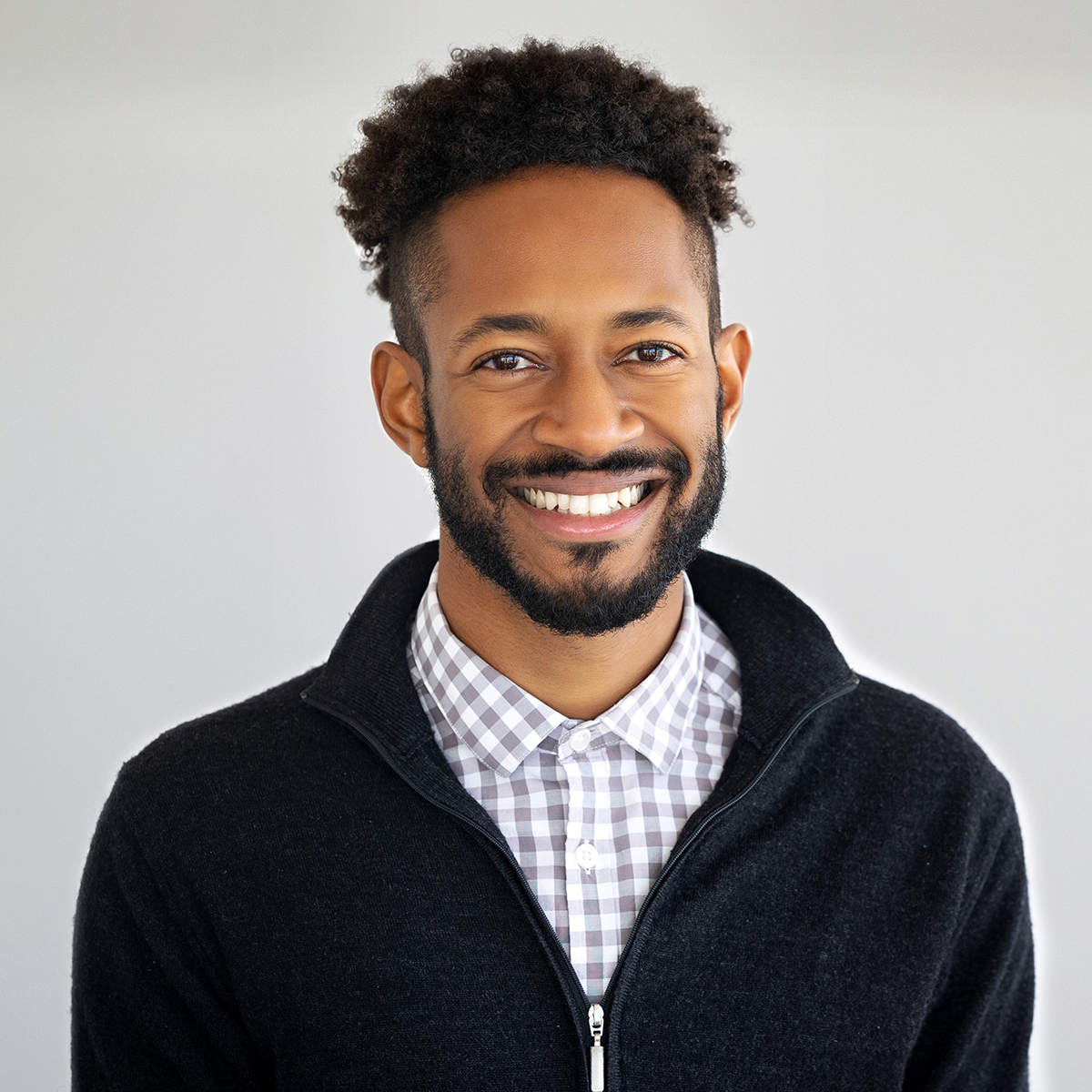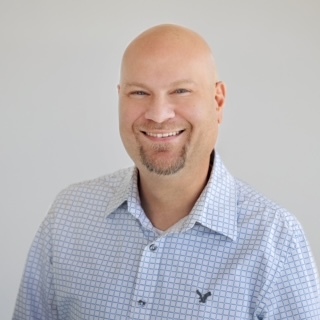
Kyron Pierce
Health Equity Project Coordinator
“[Health equity] is very hard work and it might be some years for us to see the fruits of our labor, but it’ll be worth it when you do produce it.”
Like many people, Kyron Pierce’s exposure to the realities of health inequities was shaped by the impactful moments of his youth—losing his father at a young age, seeing the health disparities his relatives faced, and his own challenges with the healthcare community after coming out of the closet. While this would cause some people to become jaded and turn their backs on the healthcare system, Kyron instead was motivated by these experiences to dedicate his life to public health—to “save somebody’s parent or sibling or family member or friend from experiencing some of the same things I went through when I was a kid.”
In his academic career, Kyron received a Bachelor of Science degree in kinesiology from Temple University and a Master of Jurisprudence in health law from Loyola University. He started his career in health care in 2016 with the Family Health Centers of San Diego as a care coordinator and patient navigator before working in brain research at the Pacific Neuroscience Institute. From there he joined us here at HealthBegins as a Health Equity Project Coordinator, where he provides support to project managers and consultants for health equity projects, facilitates collaboration with stakeholders, and creates and reviews project-related content. Here he shares the roots of his drive to empower others and explains why he is likely to survive a zombie apocalypse.
When did you first recognize the reality of health inequities?
I noticed it when I was younger, growing up in a pretty privileged environment outside Atlanta where I always had access to health care and access to education about health care. But when I would travel back to Detroit, where most of my family is, I saw the differences, even as a kid, between what people had access to, what people knew about, and the local lifestyle choices. It was the first time I ever saw a disparity before even knowing what a disparity was. It directly affected my family because some of my family members had diet problems or inactive lifestyle problems. I unfortunately lost my father to a heart attack when he was in his forties. That raised an alarm in my family, like, “This isn’t supposed to happen.” People aren’t supposed to be dying of heart attacks that young. I later learned it was just a reflection of a bigger problem, but I recognized the inequality of that on a personal scale when I was a kid.
What life experiences shaped your understanding of health equity?
All the access to things that I had when I was younger was great, but health disparities didn’t really hit me until I was older, and I came out of the closet. I just saw how different it was for a queer person to access health care and how uncomfortable it could be sometimes to talk to healthcare providers who just weren’t culturally sensitive or culturally aware of their delivery and our community.
How did you decide that you wanted to make health equity your work?
When I was younger, I developed a passion for wanting people to lead healthy lifestyles. I was a health-conscious person from my teenage years, and I feel like my life was changed for the better because of my healthier decisions. So I thought that if I could share my knowledge around health care that I could really make an impact in the world and make a change in people’s lives. I also wanted to be able to save somebody’s parent or sibling or family member or friend from experiencing some of the same things I went through when I was a kid. Working in health equity, I have the chance to help institutions change the structures and conditions that make it harder for people to have the healthy lifestyles they may want.
Describe a problem that people involved in health care face, be they practitioners or patients, that you would like to solve.
I really wish that patients felt more comfortable to ask their providers questions about their own health. I feel like a lot of people, and myself included, sometimes can feel shame about things that are going wrong with their health. And it’s unfortunate that a lot of times, physicians or providers reaffirm that shame in their communication due to bias, whether it be based on race or sexual orientation. So yeah, if I could change anything about health care, it would just be the way that patients and providers are able to communicate with each other.
What advice would you offer others striving to advance health equity?
Be patient with everything. Because this is very hard work and it might be some years for us to see the fruits of our labor, but guaranteed it’ll be worth it when you do produce it.
Tell us a little about the people who shaped your values.
That’s a two-parter. I definitely get a lot of my personal values from my experiences with my family and friends. And not to even say that I universally share my family and friends’ values, because I typically don’t, but I think that it’s important to be surrounded with people who don’t think the same as you. The second answer to that question is just me. I have sought out information about things that I don’t understand so that I could form a personal opinion about it. That is how I shape my values, by just doing the work to figure it out myself.
Who inspires you?
It’s always hard to answer that question because growing up I didn’t see myself in a whole lot of people. There has been a lack of representation among queer Black icons who I directly identify with, and I feel like that’s who I would look to for more inspiration, but with that said I’m inspired by any person who has had to fight against preconceived notions about them or who broke a glass ceiling and succeeded.
What brings you meaning in your life outside of work?
I like being active and I like seeing myself out in the world. So what brings me meaning is just living my life and trying not to be a cog in the machine. I just want to be free, do my own thing, and learn more about the world around me.
What do you wish everyone else understood about health equity?
That health equity doesn’t have to just look one way. I think some people in the industry hear health equity and they think it’s unidirectional, but it’s bidirectional. Yes, we have to do the work, but we also have to engage the communities that we’re outreaching to or the communities that are historically marginalized. It’s really important to create a two-way street where we can go to the community for questions and answers about the way things can be changed, but then the community can also come back to the professionals and say, “We have this issue and we think that you all can change it.”
What’s a fun fact about you that many people may not know?
I’m an Eagle Scout and with that I have a bunch of random skills that I got from being in the Boy Scouts that don’t make any sense to daily life, but if there was a zombie apocalypse, I actually think I’d be okay.
What are your favorite films, books, or podcasts?
My all-time favorite movie is Casino Royale. I just think it’s very classy yet intense. Favorite book is a book that Ale, my manager, recommended to me years ago, called The Alchemist. It’s a poignant and relatable tale about the journey of a hero, but it’s incredibly inspirational and beautifully written.
When you were a kid, what did you want to be when you grew up?
I wanted to be several things when I was a kid. I wanted to work at SeaWorld and work with sea animals. Then I drastically pivoted and thought I wanted to be an entertainment lawyer at one point in my life. Also, I wanted to be a movie director.
What’s one thing you’re learning now and why is it important?
I’m learning to give myself credit for things that I don’t always give myself credit for.
Vsem Yenovkian is the Communications Manager at HealthBegins.
Featured Content
Staff Spotlight: Erica Jones, Following Her Path and Passion to Help People
“I wish people would try to advocate for themselves more, because I feel like there's this power struggle and people don't feel like they can.”
Staff Spotlight: Kyron Pierce, The Eagle Scout with a Passion For Helping People Lead Healthy Lives
“[Health equity] is very hard work and it might be some years for us to see the fruits of our labor, but it'll be worth it when you do produce it.”
Staff Spotlight: Alejandra Cabrera, Perfectly Imperfect Artist and Health Equity Advocate
When I work with people and communities, I always think back to this sense of not belonging and it drives me to continue to do the heart-work we need to do to advance health equity.


